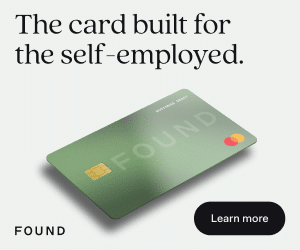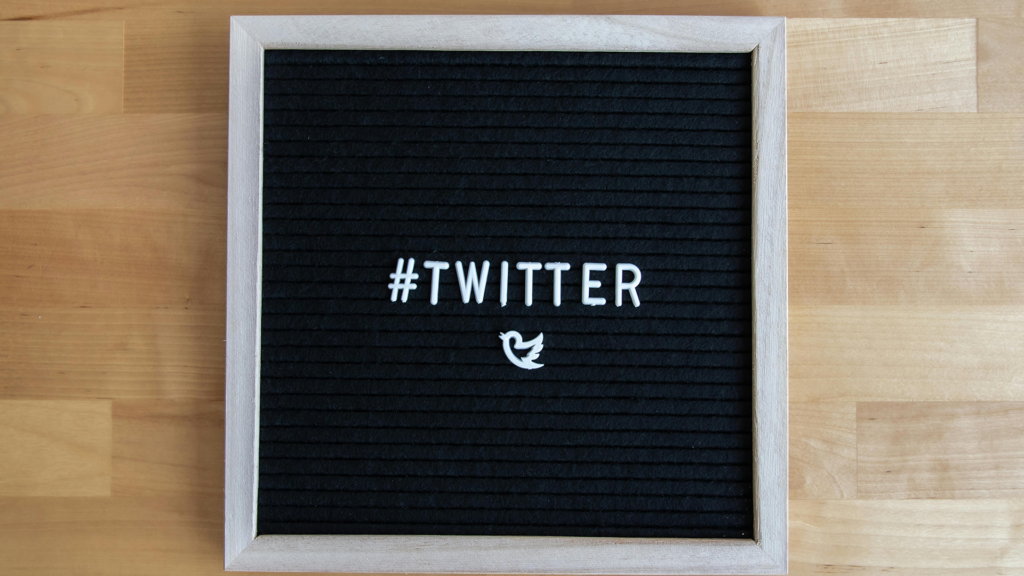Creating a business on X requires precise planning, resources, and understanding the platform’s potential. With precise actions and a focus on growth, the process becomes manageable.
We are going to offer a straightforward approach to starting a business on X, ensuring every step is clear and actionable. Whether the goal is to sell products, offer services, or build an audience, using X effectively can lead to success.
Understanding the features and opportunities provided by X is the first step toward creating a sustainable and profitable business. A business on X can grow significantly with a proper plan and consistent efforts.

Get Weekly Freelance Gigs via Email
Enter your freelancing address and we'll send you a FREE curated list of freelance jobs in your top category every week.
Understanding X as a Platform
X offers businesses a unique opportunity to grow. It provides tools and features tailored to various industries. Before proceeding, entrepreneurs should study its benefits, potential challenges, and user demographics.
By influencing the platform’s strengths, businesses can position themselves for success. Creating a business on X allows users to connect with a broad audience, promote their offerings, and expand their reach. If you have a startup or you are new to X for business and looking for ways to grow your audience, you might consider buying authentic X followers.
Benefits of Using X
- User-Friendly Interface: Simplifies the process of reaching the audience.
- Broad Audience Access: Connect with potential customers globally.
- Business Growth Features: Tools to monitor and expand your reach.
Challenges may include competition and staying updated with platform changes. Understanding both aspects is key to developing a winning strategy.
A business on X must adapt to changing trends and audience preferences to remain relevant. Businesses on X also benefit from analyzing their performance regularly and tweaking strategies to align with user demands.
Steps to Create a Business on X
Starting a business on X can be simplified with the right approach and clear objectives. This section outlines actionable steps to help set up and grow effectively on the platform.
Research and Planning
Creating a business on X begins with thorough research and planning. Every business needs a solid foundation. Identify the services or products to be offered. Analyze competitors and study market trends relevant to X.
Consider the preferences of the target audience and how the business can meet their needs. A well-researched plan ensures the business on X stands out and appeals to its audience.
- Define Goals: Set clear objectives for growth and revenue.
- Analyze Competitors: Understand their strategies to identify gaps.
- Understand Market Trends: Tailor offerings based on demand and audience behavior.
- Resource Allocation: Determine the tools, budget, and personnel required for success.
Create a detailed plan outlining the business’s goals, the resources required, and the timeline for achieving milestones.

Researching successful businesses on X can provide insights and inspiration for your approach. Additionally, staying updated on market trends ensures the company remains relevant and competitive.
Setting Up an Account
The next critical step is setting up an account on X. Sign up on X and choose a business-specific username. A professional username makes the account recognizable and builds trust with the audience.
Use a professional logo and profile to enhance visibility. Ensure all contact details are accurate for customer engagement. A business on X thrives when its account appears professional and approachable.
Add a clear description that highlights the business’s value. This description should include relevant keywords and concise information about the services or products offered. A visually appealing profile helps attract attention and establishes credibility.
Consistently updating the profile ensures that the business on X stays relevant and engaging. Integrating a call-to-action (CTA) in the profile can encourage audience interaction.
Defining a Business Model
Defining a business model suited to X’s audience is essential for success. This could include selling products, offering services, or using affiliate marketing strategies. Tailor the approach based on market analysis and customer preferences. Creating a business on X with a transparent model ensures steady growth and profitability.
We have got examples for you.
- Product-Based Model: Showcase and sell physical or digital products.
- Service-Based Model: Offer expertise or services to solve customer needs.
- Affiliate Marketing: Earn commissions by promoting third-party products.
- Subscription Model: Provide exclusive access to premium content or services.
A business on X benefits from aligning its model with audience expectations and platform features. Combining these models can diversify revenue streams and make the company more resilient to market changes.
Importance of Marketing
Marketing increases visibility and attracts the target audience. X supports multiple marketing methods, such as content sharing, ads, and influencer partnerships.
A successful marketing strategy on X involves consistency, creativity, and engagement. Promoting a business on X through effective marketing ensures maximum reach and interaction.
Focus on creating engaging posts that align with audience interests. Use high-quality visuals, clear captions, and relevant hashtags to reach more users. Collaborating with influencers on X can also boost visibility and credibility.
Use analytics tools available on X to monitor performance and refine strategies for better engagement. A business on X grows faster when marketing is tailored to the platform’s unique dynamics.

Key Marketing Strategies
- Content Sharing: Regularly post valuable and engaging content.
- Influencer Partnerships: Collaborate with popular creators for promotions.
- Targeted Ads: Use paid campaigns to reach specific demographics.
- Live Sessions: Engage directly with audiences through live Q\&A or product demos.
Diversify marketing efforts by combining organic and paid methods. While organic methods build trust and long-term relationships, paid ads can quickly expand reach. Both methods are valuable for building a strong presence on X.
Regularly evaluating marketing performance ensures that the business remains competitive and effective. Furthermore, storytelling in marketing efforts can emotionally connect with the audience, fostering loyalty.
Building Customer Relationships
Customer satisfaction drives growth. Respond promptly to inquiries. Address feedback constructively and improve based on customer inputs. Offering consistent value encourages loyalty. Strong customer relationships lead to repeat business and positive referrals. A business on X that prioritizes its customers’ needs builds lasting success.
Engage with followers by answering their questions, acknowledging their comments, and sharing user-generated content.
This interaction shows that the business values its audience, which helps build trust and loyalty. Consider creating exclusive offers or discounts for loyal customers to strengthen these relationships further. A business on X flourishes when it maintains open and positive communication with its audience.
Customer Engagement Tactics
- Personalized Responses: Reply to messages and comments directly.
- Exclusive Offers: Provide discounts or deals for loyal followers.
- Community Building: Host events or discussions to interact with the audience.
- Feedback Loops: Conduct surveys to gather valuable customer insights.
Effective customer relationship management on X involves transparency, promptness, and a genuine interest in the audience’s needs. Businesses on X prioritizing these aspects are more likely to succeed in the long run.
Monetization Strategies
X provides opportunities for earning through ads, partnerships, and subscriptions. Consider diversifying revenue streams. Ensure the business remains compliant with platform policies. A business on X benefits from exploring multiple monetization options to maximize earnings.
Ad Revenue: Generate income by displaying ads on your content.
Partnerships: Collaborate with brands for sponsored posts.
Memberships: Offer exclusive perks for subscribers to ensure a steady income.
Merchandising: Sell branded merchandise to loyal customers.
Ads can be a significant source of income, especially for businesses with a large audience. Partnerships with other companies or influencers on X can generate revenue and expand the brand’s reach.

Subscriptions and membership plans offer a way to earn consistent income from loyal customers. Creating a business on X with multiple income sources ensures financial stability and growth.
Understanding the monetization options available on X allows businesses to choose strategies that align with their goals. Experimenting with different approaches and analyzing results helps optimize earnings over time.
A business on X thrives when its revenue strategies are adaptable and customer-focused. Introducing seasonal campaigns or limited-time offers can boost profits and maintain audience interest.
Common Mistakes to Avoid
Avoid neglecting user preferences. Do not overlook regular updates to the platform’s guidelines. Consistency in posting and engagement is critical for long-term growth.
Businesses that fail to interact with their audience or ignore feedback risk losing followers and credibility. A business on X should stay proactive to maintain its relevance.
- Irregular Posting: Maintain a consistent schedule to keep the audience engaged.
- Ignoring Feedback: Address customer concerns to build trust.
- Overloading Content: Balance quality and quantity to avoid overwhelming followers.
- Lack of Analytics Use: Regularly review data to improve strategies.
Ensure the content shared on X is relevant, high-quality, and engaging. Avoid overloading the audience with too many posts, which can reduce engagement. Instead, focus on maintaining a balance that keeps the audience interested without overwhelming them.
A business on X that avoids these common mistakes is more likely to achieve its goals. Incorporating analytics into decision-making ensures that the company adapts to changing trends and remains effective.
Purchase Real Follower X
It is imperative for brand or business accounts on X to have a real follower base for credibility and growth. Real followers not only increase reach but also response rates to more than just the brand’s visibility. Several platforms have services to achieve this goal quite efficiently.
Reputable Sites Provisioning Real Follower Services
SocialPlug: A trusted website to get real followers ensuring wider reach and visibility for your business on X, Uproas.
FollowerHero: A trusted platform providing organic follower growth with a focus on audience relevance and engagement.
GrowthBoosters.io: A service that offers tailored solutions for increasing authentic followers, enhancing credibility, and building trust.
Uproas.io: This is a dedicated service where businesses are put in touch with real people ensuring engagement and trust for a duration.
So that accounts on X can grow more rapidly and have real interaction with their target markets, they employ realistic follower growth strategies. Always try to use trusted providers for the finest and most pertinent outcomes.
Conclusion
Creating a business on X involves precise planning and consistent effort. Building a successful business is achievable by understanding the platform, using effective strategies, and engaging with the audience.
Businesses can thrive by focusing on quality content, strategic marketing, and strong customer relationships. A business on X has the potential to grow exponentially when built on a strong foundation and managed effectively. Long-term success on X comes from a combination of adaptability, creativity, and customer-centric strategies.
Keep the conversation going...
Over 10,000 of us are having daily conversations over in our free Facebook group and we'd love to see you there. Join us!




